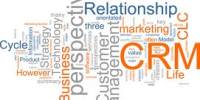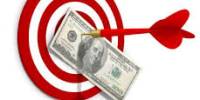To determine the effectiveness of these expenditures becomes increasingly important. While evaluative research may occur at various times throughout the promotional process (including the development stage), it is conducted to assess the effects of various strategies.
COST: Perhaps the most commonly cited reason for not testing is the expense.In one of the surveys reported, it was noted that while some companies spend as much as 25 percent of their revenue on marketing and advertising, 70 percent of them spend less than 2 percent on measuring effectiveness. Good research can be expensive, in terms of both time and money. Many managers decide that time is critical and they must implement the program while the opportunity is available. Many believe the monies spent on research could be better spent on improved production of the ad, additional media buys, and the like. For example, one of the nation’s leading brewers watched its test-market sales for a new brand of beer fall short of expectations. The problem, it thought, was an insufficient media buy. The solution, it decided, was to buy all the TV time available that matched its target audience. After two months sales had not improved, and the product was abandoned in the test market. Analysis showed the problem was not in the media but rather in the message, which communicated no reason to buy.
RESEARCH PROBLEM: A second reason cited for not measuring effectiveness is that it is difficult to isolate the effects of promotional elements. Each variable in the marketing mix affects the success of a product or service. Because it is often difficult to measure the contribution of each marketing element directly, some managers become frustrated and decide not to test at all. They say, “If I can’t determine the specific effects, why spend the money?”
DISAGREEMENT ON WHAT TO TEST: The objectives sought in the promotional program may differ by industry, by stage of the product life cycle, or even for different people within the firm, and as shown in the lead- in to this chapter there are numerous ways to measure these and not always a consensus as to what measure should be used. The sales manager may want to see the impact of promotions on sales, top management may wish to know the impact on corporate image, and those involved in the creative process may wish to assess recall and recognition of the ad. Lack of agreement on what to test often results in no testing.
THE OBJECTION OF CREATIVE: It has been argued by many that the creative department does not what its work to be tested and many agencies are reluctant to submit their work for testing. This is sometimes true AD agencies creative departments argue that tests are not true measures of the creativity and effectiveness of ads; applying measures stifles their creativity; and the more creative the ad, the more likely it is to be successful.
TIME: A final reason given for not testing is a lack of time. Managers believe they already have to much to do and just can’t get around to testing, and they don’t want to wait to get the message out because they might miss the window of opportunity.
















